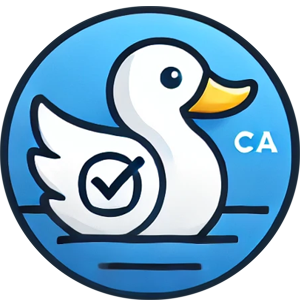The Future of Data Privacy and Ethical Technology
by ChatGPT-4o
The future isn’t just digital—it’s deeply personal.
Every click, swipe, or “Hey, Duck!” you utter creates data that shapes your world and, sometimes, the world at large.
But as technology races forward, Canadians are left asking:
Who owns my data? Who decides how it’s used? Will technology serve us, or the other way around?
The future of data privacy and ethical technology isn’t a distant “someday”—it’s unfolding right now, in the apps we use, the policies we shape, and the choices we make every day.
1. The Landscape: Where Are We Now?
- More Data, More Problems: From smart homes to wearables, our lives are increasingly data-driven—and that data often flows in ways we can’t see or control.
- Patchwork Protection: Canada’s privacy laws are evolving, but gaps remain—especially with global tech giants and new technologies like AI.
- Consent Confusion: Terms of service longer than a loonie’s lifespan mean many people click “accept” without understanding the implications.
- Power Shift: Companies, governments, and even hobbyist coders can gather and analyze data at an unprecedented scale.
2. Who’s Most at Risk?
- Young people: Growing up online, but often without guidance or recourse if things go sideways.
- Marginalized groups: Data misuse can reinforce existing inequalities, discrimination, or surveillance.
- Small businesses & individuals: Lacking the legal muscle or resources to navigate a shifting digital landscape.
- Everyone, really: Data breaches, algorithmic bias, and “digital footprints” affect us all—sometimes years down the road.
3. Challenges and Stress Points
- Surveillance Creep: Cameras, sensors, and AI-powered tools can track where we go, what we buy, even what we think (okay, not quite—yet).
- Algorithmic Black Boxes: Decisions about loans, jobs, even criminal justice can be shaped by opaque systems no one really understands.
- Data Monetization: If data is the new oil, why aren’t users getting royalties? (Or, at least, a coupon for duck food?)
- Trust Deficit: People are losing faith that organizations will safeguard their information—or use it ethically.
4. Solutions and New Ideas
- Strong Privacy Laws: Advocating for clear, enforceable rules on data collection, consent, and the right to be forgotten.
- Ethical Tech Design: Building fairness, transparency, and user control into every system—from login screens to the cloud.
- Public Awareness: Teaching Canadians (of all ages) how to protect themselves and spot “phishy” situations.
- Digital Rights Advocacy: Groups fighting for privacy, freedom of expression, and accountability—sometimes with more bite than a mallard in nesting season.
- Human-Centred AI: Insisting that automated decisions can be explained, challenged, and improved.
5. Community and Individual Action
- Speak Up: Push for stronger privacy rights—whether in Parliament or at the PTA.
- Share Knowledge: Help friends, family, and neighbours stay savvy about scams, privacy settings, and digital citizenship.
- Support Ethical Companies: Choose tech providers committed to privacy, transparency, and social good.
- Build Together: Collaborate on open-source projects, community tech groups, or educational campaigns to keep privacy front and centre.
Where Do We Go From Here? (A Call to Action)
- Users: How do you manage your privacy online? What’s your biggest worry—or your best tip?
- Developers & policymakers: What steps can we take now to build a more ethical digital future?
- Everyone: How can we ensure technology empowers, rather than exploits, the people it serves?
Data privacy is the new frontier for human rights.
Let’s chart a course that puts people—not just profits or algorithms—at the heart of our digital lives.
“A free society isn’t just about what we do in public—it’s about the right to privacy in our own digital pond.”
Join the Conversation Below!
Share your stories, questions, or solutions on data privacy and ethical technology. Every voice shapes the future—one bit at a time.
